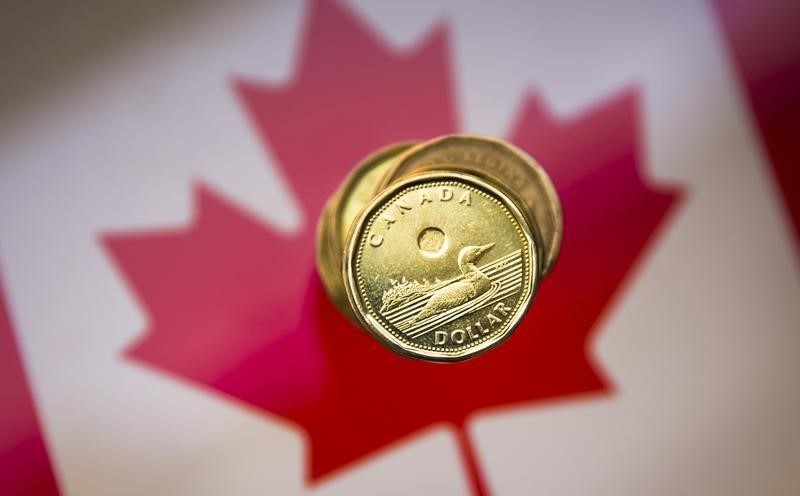By Solarina Ho and Anu Bararia
TORONTO/BENGALURU (Reuters) - The battered Canadian dollar is set to weaken further in the coming months as oil prices remain volatile and an upcoming election fuels uncertainty for the major oil exporter, a Reuters poll showed.
The Canadian economy has taken a hit from the roughly 50 percent plunge in crude prices since last summer, with the loonie tumbling more than 20 percent over the same period.
"Longer term it is going to be very much tied to oil prices - how quickly, or at the moment it seems how unquickly, oil will rebound," said Andrew Grantham, a senior economist at CIBC.
"The longer oil prices stay fairly depressed, the greater length of time the Canadian dollar would stay weak as well."
A global supply glut and a ramping up of production in Iran will keep oil prices low next year, a separate Reuters survey of analysts found.
An extremely tight race in the upcoming federal election in Canada on Oct. 19 is also adding to market anxiety. The country's two main political parties, the Conservatives and Liberals are tied at 32 percent, according to a poll last week.
"We just have to look back to the case of sterling fairly recently, that currencies do tend to weaken in times of uncertainty regarding the political future of the economy," said Grantham.
The Reuters poll of 50 currency strategists showed almost one in four downgraded their expectations for the loonie in the coming months.
They now peg the Canadian dollar at C$1.320 in a month, unchanged from last month's poll median but weaker than Tuesday's close of C$1.3027 versus the greenback, or 76.76 U.S. cents.
The currency is expected to weaken to C$1.34 in three months, C$1.342 in 6 months and rise modestly to C$1.32 in a year. A month ago forecasters predicted it would trade at C$1.33 in three and six months and C$1.30 in a year.
Last week, the Canadian dollar hit an 11-year low of C$1.3455 to the greenback, or 74.31 U.S. cents.
Expectations the U.S. Federal Reserve will hike interest rates in the coming months will also continue to drive the loonie, though financial markets and economists are increasingly divided over the timing of the hike.
Recent economic data, including a weak U.S. jobs report for September and a widening trade deficit, is fuelling expectations that any move will be deferred to 2016.
A Fed rate hike "should strengthen the U.S. dollar broadly and the Canadian dollar will weaken accordingly," said Benjamin Reitzes, senior economist at BMO Capital Markets, who is betting on a December move.

Predictions for a hike in U.S. interest rates stand in contrast to the Bank of Canada's likely path. After cutting rates by 25 basis points twice this year, the Canadian central bank is expected to keep policy on hold until 2017.
(Polling by Rahul Karunakar and Anu Bararia; Writing by Solarino Ho in Toronto and Anu Bararia in Bengaluru; Editing by Jeffrey Benkoe)